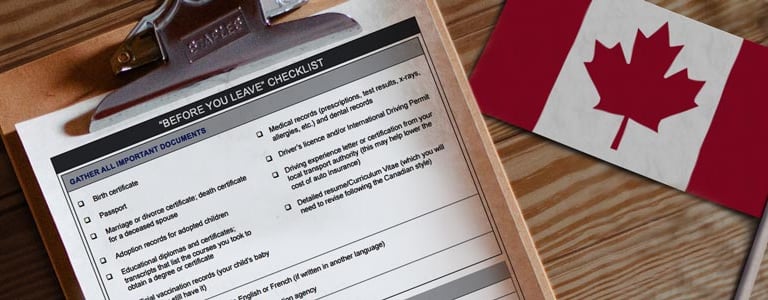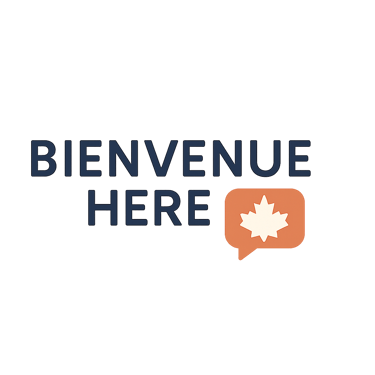Moving to Montreal: Checklist for New Students & Newcomers
Montreal is an exciting, multicultural city with world-class universities and a relatively affordable cost of living. To ensure a smooth transition, plan before and after you arrive. Below is a thorough checklist of tasks – from paperwork and travel to campus registration and settling in. Be sure to follow university and government guidance for international students.
Pre-Arrival Preparation
Visas & Immigration: If you’re an international student, apply early for a Canadian study permit (via IRCC) and a Québec Acceptance Certificate (CAQ) if your program is over 6 months. Keep your passport valid for at least your entire planned stay. Bring the original letter of introduction for your study permit, your university acceptance letter, and (if required) an eTA or temporary resident visa. Ensure you have proof of sufficient funds for tuition and living expenses; border officers will check you can support yourself.
Note for Canadian arrivals: No visa is needed if you’re a Canadian citizen or permanent resident, but you must still register for Québec’s health plan (RAMQ) once you settle in. (You may have a 3-month wait for full coverage – see “Health Insurance” below.)
Health Insurance: Quebec residents need provincial health coverage. Check if your country has a reciprocity agreement with Québec. If so, register online for the RAMQ plan as soon as you arrive (you’ll need your CAQ and study permit). If there’s no agreement, arrange private health insurance to cover you until (and if) you become RAMQ-eligible. Many universities offer guidance on health plans and coverage gaps.
Finances & Banking: Set up a Canadian bank account for easier transactions. Major banks (RBC, Scotiabank, TD, National Bank, Desjardins, etc.) offer free student accounts. Gather necessary docs (passport, study permit, CAQ, admission letter, proof of address). Plan a budget: rent in student areas is roughly $500–$1,200/month (shared or alone) plus groceries, transit, and personal expenses. Carry some cash or a credit card for initial expenses to avoid high foreign ATM fees. Consider using a low-fee money-transfer service (e.g. Wise or Revolut) for sending funds into Canada.
Housing: Arrange accommodation in advance. Apply early for on-campus residences at your university (McGill, Concordia, UdeM, etc.). If off-campus, scout neighborhoods popular with students (Plateau-Mont-Royal, Côte-des-Neiges, Mile End, etc.). Use trusted rental sites (Rentals.ca, Kijiji) and Facebook groups like “Montreal Student Apartments.” Be prepared to pay a deposit or first month’s rent.
Academic Registration: Check if you need to register for courses or orientation before arrival. Set up your student portal and upload essential documents: many universities (e.g. Concordia) require you to upload your CAQ, study permit, and passport copy into their system by the first day of classes. Obtain your Quebec “Code Permanent” (student number) if needed (via your student hub) so you won’t be penalized later. Save your university admission and scholarship documents in your email.
Packing & Pre-Travel: Pack appropriately for Montreal’s climate. If arriving in fall/winter, bring a warm winter coat, snow boots, hat, gloves and scarf (layering is key for temperatures that average –10 °C and can dip near –30 °C). Also pack electronics (bring a Canadian-style plug adapter for 120V). Bring any prescription medications (with a doctor’s note), academic materials (laptop, notebooks, a few textbooks), and original copies of all documents. Note flight/travel details and emergency contacts.
Communications: Research Canadian mobile plans; you can buy a prepaid SIM card (Bell, Rogers, Fizz, etc.) at the airport or shortly after arrival. Alternatively, you can plan for an eSIM or contract after comparing rates. Ensure your phone is unlocked to use a Canadian SIM.
Consular Registration: As an extra precaution, register with your country’s embassy or consulate in Canada. This is useful in case of any emergencies abroad or urgent official needs.
Arrival & First Steps in Montreal
At the Airport (YUL – Montréal–Trudeau): When you land, line up for Canadian immigration. Present your passport, study permit letter (letter of introduction), CAQ and acceptance letter to the border officer. If not already stamped, ask an officer to stamp your passport to prove entry. They will issue your actual study permit. Consider stopping at the “Accueil Plus” counter if available (they assist new international students).
Getting to the City: Purchase a ticket for the STM 747 Express bus at the airport ($10 CAD) – it runs 24/7 to downtown Montréal. Alternatively, take a taxi with a flat rate (~$40 to downtown). Arrange any campus pickup you might need. If renting a car, reserve it in advance; otherwise, familiarize yourself with Montréal’s public transit (STM buses, metro).
Mobile & Transit Card: Upon settling into your luggage, get a local SIM card at the airport or nearby telecom store. Also buy an OPUS card (reloadable transit card) for buses/metro. Students can register for a 50% discount through their school (linking your OPUS with your student email).
Health Insurance Enrollment: Immediately apply for the Quebec health plan (RAMQ) if you have a qualifying agreement country. You’ll need your CAQ and study permit. If eligible, start your application online and pay any fees. You’ll get a health card in the mail after a waiting period. If you’re not eligible for RAMQ, ensure your private insurance policy from home covers your stay or purchase a student plan.
Banking: If you haven’t done so, open your Canadian bank account now. Visit a local branch with your passport, study permit, CAQ, student ID/admission letter, and proof of address (even a dorm confirmation works). Once opened, deposit funds. Avoid high out-of-network ATM fees by using your new bank’s ATMs or get a debit card.
Registering Your Arrival: Attend any university orientation sessions as soon as possible. Get your student ID card and validate your admission by uploading documents if not already done. Explore your campus: find the library, study spaces, health center, and student services. Join your department’s or campus Facebook/WeChat group to meet classmates.
Immediate Essentials: Go shopping for basics. Stock a small pantry and fridge with groceries from supermarkets (PA Supermarché, Adonis, Provigo, etc.). Buy toiletries and cleaning supplies. If it’s cold, pick up winter gear (coats, boots, hats) at second-hand stores like Eva B or Village des Valeurs or affordable retailers. Furniture, kitchenware and bedding can often be bought at IKEA or local stores if your housing isn’t furnished.
Settling In (First Weeks)
Accommodation Logistics: Move into your dorm or apartment. Set up your room/apartment (make your bed, unpack valuables). If renting off-campus, set up utilities (electricity/gas, internet) in your name. Check smoke/carbon alarms. Find the nearest grocery, pharmacy, and convenience store for daily needs. If you get mail (e.g. bank card), ensure your address is correct or use campus mailbox.
Local Orientation: Familiarize yourself with your neighborhood. Locate important places: bus/metro stops, hospitals/clinics, police station, pharmacies, and grocery shops. Download transit apps (e.g. STM app) and map apps for navigation. Save emergency numbers: 911 for police/fire/ambulance, or 514-935-3311 for non-emergencies in Montreal.
Social Insurance Number (SIN): If you plan to work or do a paid internship, apply for a Social Insurance Number (SIN). You must have one to work in Canada. You’ll need your study permit and passport to apply (online or Service Canada office). Only after your classes start can you legally work off-campus (up to 24 hours/week as of Nov 2024).
Register for Health Card: Mail your RAMQ enrolment confirmation. If you had private insurance in the interim, notify HR at school (if applicable) and switch to RAMQ once eligible. Keep copies of all health insurance documents.
Get a Driver’s License (if needed): If you brought a car or plan to drive, you must get a Québec driver’s license within 6 months of becoming a resident. Study the Québec driving guide (in English) and book a test if required. Park carefully and obey winter tire rules. (Alternatively, use transit or bike-share in the city.)
Connect Locally: Exchange Canadian currency if needed. Join a Canadian bank’s online banking. Register for local services (e.g. gym, library card – the STM public library is free with proof of address). Get a Quebec phone plan or home internet plan if needed – compare plans on sites like Planhub.ca to save money.
Culture & Language: Learn basic French phrases – many Montrealers speak English, but French is widely used. Universities often offer free French conversation courses or language tandem meetups. Be polite and say “Bonjour/Bonsoir” in shops. Tip at restaurants 15–20% on the pre-tax bill (Quebec taxes are 5% GST + 9.975% QST); note that since May 2025 tipping must be calculated on pre-tax amounts.
Explore & Integrate: Join student clubs, attend campus events and socials to meet people. Use apps or university groups (e.g. international student societies at McGill or Concordia) to make friends. Try local foods (bagels at St-Viateur/Beaver, smoked meat, poutine), and experience the city (Mount Royal Park, museums, markets). Immerse yourself in campus life: check study groups, tutoring centers, or on-campus jobs like tutoring or research assistantships.
Academic Setup
Course Registration: Finalize your course enrolment. If your program has pre-requisites or program checklists, meet with your academic advisor to ensure you’re on track. Note add/drop deadlines in the academic calendar. Order or rent required textbooks. Many students find used books on campus groups or sites.
Technology & Supplies: Set up your student email and learning portals (Canvas, Teams, etc.). Purchase school supplies (notebooks, stationery). Verify that your laptop or device is set up with required software (office suite, university VPN, etc.). If you need academic software (e.g. MATLAB, Adobe), download via campus site licenses.
Campus Orientation: Attend all mandatory orientation sessions and info fairs. Get a campus map (or use the mobile app) so you can find buildings and lecture halls. Memorize routes or landmarks to navigate from home to campus. Learn about campus safety (blue emergency phones, security escort services) and note hours of student centers.
Student Services: Locate the International Student Office (ISO) or equivalent at your school – they can help with visa paperwork, health coverage questions, and other support. If you’re at Concordia, find your assigned ISO advisor or at McGill/HEC reach out to their international office. In many cases, you’ll get help with renewing permits or understanding work rules.
Stay Organized: Create a checklist for any remaining paperwork: paying tuition fees by deadline, submitting final transcripts, scanning copies of all important documents for yourself. Check that your mailing address is updated in your student portal to receive refunds or notices.
By following this comprehensive checklist, you’ll cover the key steps before departure, on arrival, and during your first weeks in Montreal. From securing your immigration documents to finding groceries and joining a student club, each item will help make your transition smooth. Remember to carry copies of important documents at all times and to keep digital backups. Enjoy your adventure in Montreal – bonne chance!


